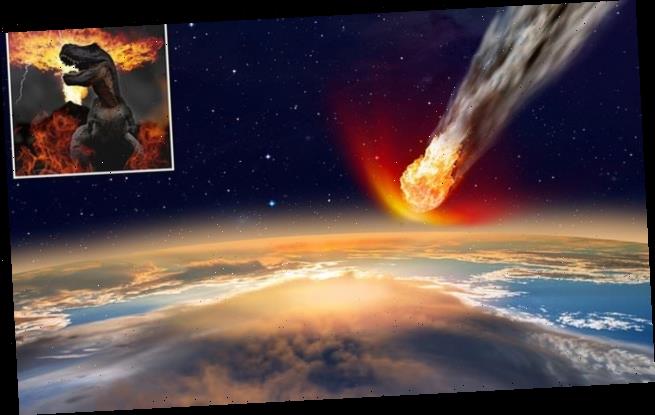Bryan Fogel’s “The Dissident” was too hot to handle.
The documentary about the murder of Jamal Khashoggi, the journalist and political activist who was allegedly killed in 2018 on the orders of the Saudi Royal Family, was one of the hottest films at last year’s Sundance. It had glowing reviews, a ripped from the headlines subject, and a big-name director in Fogel, fresh off the Oscar-winning “Icarus,” a penetrating look at Russian doping that got the country banned from the Olympics.
And yet, Netflix, which had previously released “Icarus,” and other streaming services such as Apple and Amazon steered clear of “The Dissident.” Without any interested buyers, the film languished until last fall. That’s when Briarcliff Entertainment, an obscure distributor run by former Open Road CEO Tom Ortenberg, announced it would release the movie on-demand.
Fogel thinks the subject matter was too explosive for bigger companies, which have financial ties to Saudi Arabia or are looking to access the country’s massive population of well-to-do consumers. Using interviews with Khashoggi’s fiancee Hatice Cengiz, as well as friends and fellow activists, Fogel creates a damning portrait of Crown Prince Mohammed Bin Salman’s apparent involvement in brutally silencing the writer and thinker and the country’s crackdown on free speech. Thanks to previously unreleased audio recordings, “The Dissident” draws a direct line between Khashoggi’s assassination at the Saudi embassy in Turkey and the Saudi government’s anger over his outspoken criticism of the country’s human rights abuses and mismanagement.
“The Dissident” is currently available on-demand, but its rather muted release isn’t the way Fogel had dreamed of provoking a larger conversation around Khashoggi’s murder. He spoke to Variety about the difficulty of making “The Dissident” and then getting it seen and why he thinks his new movie had the major streamers running scared.
Why did you want to make “The Dissident”?
After the success of “Icarus,” I felt a great burden and social responsibility to make a worthy follow-up. I was looking for a story regarding human rights, regarding freedom of speech, freedom of press, journalism. I also wanted a story that had real world implications that could create real world change through social action or political action.
As the investigation into the murder of Jamal unfolded, my ears perked up and I immediately started reading more about this man. I hadn’t heard of him, but I found out how trusted and regarded he was as a voice on the Middle East. He was also being presented in many media circles as a terrorist sympathizer or member of the Muslim Brotherhood or a friend of Bin Laden. This was not true. He was a moderate, who was fighting for free speech for his country and believed women should have rights. He believed Mohammed Bin Salman’s policies were putting the country on the wrong direction.
Was it difficult to get his friends and fiancee and family to speak to you?
It was very very difficult. This is where the accolades and recognition of “Icarus” and the Academy Award really changed the conversation. In those weeks following his death every journalist was after Hatice. As I approached her and other people, they were able to see my prior work. Hatice invited me about a month after his murder to come and meet with her in Istanbul. I didn’t bring a film crew. I spent the next five weeks there just building trust. It was a harrowing time in her life and I just kept explaining that I was not there for a day or a week or a month. I told her: if we do this, we’re going to go on this journey together. I promised that if she let me into her life, I was going to protect Jamal.
At the Sundance premiere, you challenged distributors to “…not be fearful and give this the global release that this deserves.” How did that turn out?
[Netflix CEO] Reed Hastings was there that day and so was Hillary Clinton. We had a standing ovation. People were wiping tears from their eyes as Hatice took the stage. It was the same scene at each one of our screenings. We were blessed with incredible reviews from all of the trades. In any normal circumstance, you’d think of course this film is going to be acquired and distributed. And yet not only was it not acquired and distributed, there was universal silence. Not a single offer. Not for one dollar or not 12 million dollars, which was what was paid for another documentary title at the festival. Nothing. It was literally as if nobody knew me. It was that startling and that shocking.
Six months later Tom Ortenberg and Briarcliff Entertainment stepped forward and said, hey we want to distribute this film. That’s wonderful. People will be able to rent this film on-demand. But what I wanted was for this film to be streaming into 200 million households around the world. I wanted people to have easy access to it. Instead we pieced together global distribution here and there.
Will this have a chilling effect on movies that want to tackle these kinds of controversial subjects?
This is a depressing and eye-opening moment that any filmmaker that wishes to tell a story like this needs to pay attention to. These global media conglomerates are aiding and abetting and silencing films that take on subject matter like this despite the fact their audiences want content like this. I was told that “Icarus” has had somewhere in the neighborhood of 700 million views. I don’t know if that’s accurate, but I know it was substantial. The decision not to acquire “The Dissident” had nothing to do with its critical reviews, had nothing to do with a global audience’s appetite to watch a docu-thriller, but had everything to do with business interests and politics and, who knows, perhaps pressure from the Saudi government. Netflix did remove Hasan Minhaj’s episode of “Patriot Act” [at the Saudi government’s request] in 2019 and defended that decision by saying, “we’re not a truth to power company. We’re an entertainment company.” It has been a struggle to get this film into the world and to shine a light on the human rights abuses that are happening in that kingdom. These companies, that have chosen not to distribute this film, in my opinion, are complicit.
Have you had conversations with these companies about why they didn’t want to release “The Dissident”? If so what has been their response?
It has been to not respond.
Is this about money? Are they wary of angering the Saudi Royal Family because they have money from Saudi Arabia or want to access their market?
My guess is both. Decisions are being made that it’s better to keep our doors open to Saudi business and Saudi money than it is to do anything to anger the kingdom. Netflix released a statement regarding Black Lives Matter that is in direct contrast to their statement regarding Hasan Minahaj. One stands behind truth to power and the other says we’re not a truth to power company, so it appears they are a truth to power company when it is convenient. But when their business doesn’t align with that or it might impact their subscriber growth, they’re not. The same can be said for all the streaming companies. In the film, there’s Jeff Bezos on the stage with Hatice. Jamal worked for Jeff Bezos [at the Washington Post, which Bezos owns]. So the same can be said of Amazon. I don’t want to point a finger at anyone because it’s all of them. This is a situation where business, subscriber growth, investment was more important than human rights. There’s got to be greater accountability. Not just on a business level, but on a political level. Trump vetoed the desire of both the House and the Senate to hold Saudi Arabia accountable for this crime. He continued to sell them weapons. He’s trying to get the Justice Department to grant Mohammed Bin Salman immunity from prosecution.
Would you still work for Netflix or the other streamers who declined to release “The Dissident”?
Listen, this is my career. This is my work. I’m sure that I will have other projects that might not take on subject matter like this and are not at odds with their business interests. When those projects come along, I will be glad to work with any of these companies. Look, I love Netflix. I really, really do. I’m so grateful to them because without Netflix, “Icarus” would not have become what it became. I’m not insulted by this. I’m not personally offended. I don’t view anything that is happening as personal. I just view it as business. I can understand it on a business level. I don’t agree with it, but I get it. I’m not mad. I’m disappointed.
What message do you want viewers will take away from the film?
There’s a hashtag #JusticeForJamal and the question has to become what does justice mean? We know that Mohammed Bin Salman will not stand trial for this murder. We know that the henchmen he sent are unlikely to truly stand trial. We have to look to the future. So what I hope people will take from the film is knowledge, because knowledge is power. Just like “Icarus” or “Blackfish” or “The Cove,” I hope this film has the ability to change hearts and minds. As more and more people come to “The Dissident,” I hope there’s a call to action. I hope that takes place on social media or through writing letters to congressmen or senators. The first thing I hope is people will spread the word. The second thing is I hope they will use the power of free speech that we have in this country and are so blessed to have to change the narrative. The Arab Spring happened because of Twitter, the Black Lives Matter and #MeToo movements took hold because of social media. We’ve seen that through combined action, change can come.
Disclosure: SRMG, a Saudi publishing and media company which is publicly traded, remains a minority investor in PMC, Variety’s parent company.
Source: Read Full Article

